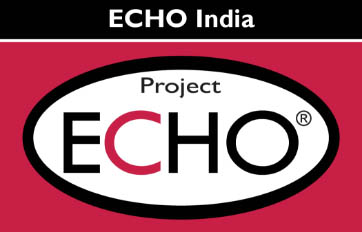A newborn’s first food is nature’s first vaccine. Breastfeeding gives babies the immunity, nutrition, and warmth they need to survive and thrive, and protects mothers from long-term health risks. The science has been clear for decades: breastfeeding reduces infant mortality, boosts brain development, lowers the risk of infections, and even helps prevent conditions like obesity and diabetes later in life.
And yet, even today, breastfeeding in India remains a silent struggle for many women, not because they don’t want to breastfeed, but because they are surrounded by systems and social expectations that don’t know how to support them.
As someone who has spent over two decades in maternal and child health, and now leads the nursing vertical at ECHO India, I have seen how quickly breastfeeding efforts unravel when a mother is left unsupported. A lack of privacy in hospitals, fatigue after childbirth, pressure to “feed the baby something quickly,” and myths from well-meaning relatives can all overwhelm her. At times, it takes just one difficult feed, one dismissive comment, or one moment of doubt to derail something so natural and instinctive.
And then there’s stigma. If a mother chooses not to breastfeed due to medical or mental health reasons, she faces judgment. If she breastfeeds in public, she’s shamed. If she breastfeeds for too long, she’s questioned. The pressure to “do it right” while silently struggling often pushes women into guilt, confusion, or silence.
One story has stayed with me—my own. When I gave birth to my first child, it was a preterm emergency cesarean. I was exhausted, overwhelmed, and unprepared for what came next. Amidst the chaos and concern, I remember holding my tiny baby in my arms and feeling completely lost about how to breastfeed.
That’s when a nurse stepped in, not just with instructions, but with gentle reassurance and calm guidance. She helped me position the baby correctly, patiently explained how to support the baby’s head, and reminded me that both of us were learning together. Her presence made all the difference. In that vulnerable moment, she didn’t just help me feed my baby, she helped me believe that I could.
That is what system-level support looks like. It is not grand or expensive, but it is intentional, informed, and rooted in empathy.
At ECHO India, we don’t just run training sessions. We create communities of learning. Through our Nursing ECHO programs, we bring together nurses, midwives, ANMs, and CHOs from across India to learn from specialists and from each other, all without leaving their posts. They discuss real-world challenges, from managing latching issues to handling cultural stigma. They share what worked for them. They grow more confident with every session. And what’s more, they carry that confidence back to the mothers they serve. Because when a nurse knows how to help a mother position her baby or reassure her when she feels she’s “not producing enough,” that knowledge travels. It creates a ripple effect: better feeding, fewer complications, stronger bonds, healthier children.
Our government partners have recognised this too. By investing in virtual learning models like ECHO, they’re not only reducing the cost of repeated training workshops, but they’re also ensuring that care reaches the last mile. Health workers stay in the field. Mothers are counselled on time. Systems stretch further, and smarter.
If we truly want to promote breastfeeding, we must stop placing the burden on mothers alone. We need to prepare the nurse, the doctor, the ASHA, the family, the policymaker, everyone around her.
Breastfeeding is not a solo act. It is a system of support. And at ECHO India, we are proud to be strengthening every link in that chain.
